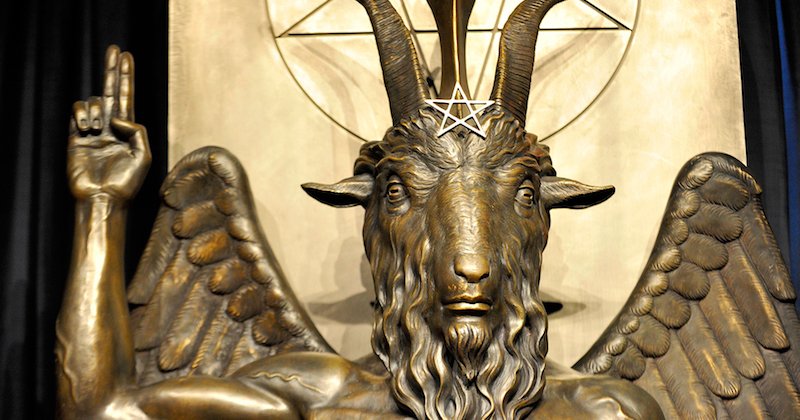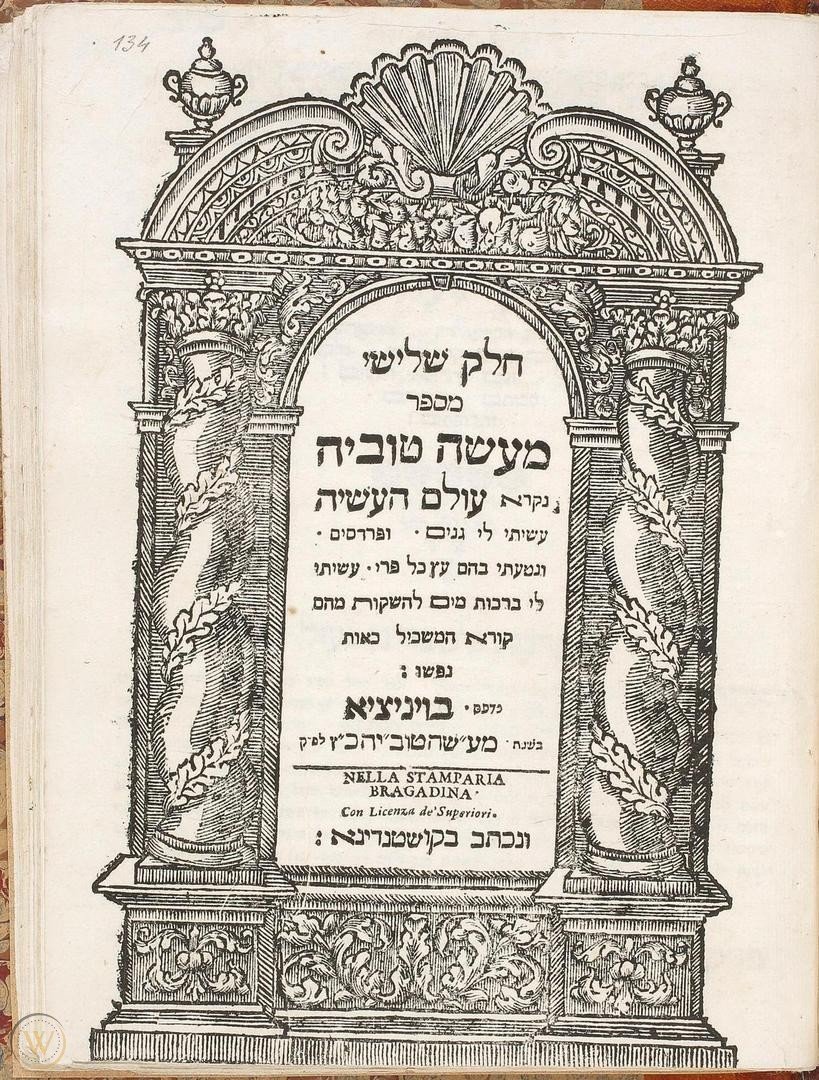On today’s page of Talmud, Rav Dosa calls his brother Yonatan a little devil. Literally:
אָמַר לָהֶם: אָח קָטָן יֵשׁ לִי, בְּכוֹר שָׂטָן הוּא, וְיוֹנָתָן שְׁמוֹ, וְהוּא מִתַּלְמִידֵי שַׁמַּאי
I have a younger brother who is the firstborn of the Satan, and his name is Yonatan, and he is among the disciples of Shammai…
Rashi explains that he meant this in a good way:
בכור שטן הוא: חריף ועומד על שמועה ועושה מעשה ואינו שב משמועתו לעשות כרבים
The first born of Satan: He is very sharp. He stands by what he teaches, and doesn't give in to the majority…
which is why the Schottenstien Talmud translates the phrase as “he is a first-class adversary.”
Following Rashi’s lead, many other commentators explain that the phrase “firstborn of the Satan” is really a compliment. It means clever, or crafty, or, as we might say today, “devilishly clever.” But that is not how it was used by Tuviah Cohen, the seventeenth century physician who wrote an important encyclopedia called Ma’aseh Tuviah.
Tuviah Cohen
We learned about Tuviah in a previous post, which you can read here. To recap, Tuviah studied in a yeshivah in Cracow, and at the age of twenty-six, entered the University of Frankfurt, where he began to study medicine. Despite being taken under the wing of Fredrick William, the elector of Brandenburg, and receiving a stipend from him, anti-Jewish sentiment prevented Tuviah from graduating. As a result, he left for the University of Padua, where he graduated with a degree in medicine in 1683 and soon found employment as a physician in Turkey. He published his only work, Ma’aseh Tuviah (The Work of Tuviah), in Venice in 1708 and moved in 1715 to Jerusalem, where he died in 1729.
Portrait of Tuviah Cohen, from his work Ma’aseh Tuviah, Venice, 1708.
Tuviah Cohen has long been a favorite of historians of science and Judaism. Perhaps this is because he was a reformer of sorts, ready to sweep away old superstitions and replace them with scientific knowledge. Perhaps it is because his book, Ma’aseh Tuviah, was “ ... the best-illustrated Hebrew medical work of the pre-modern era,” full of wonderful drawings about astronomy and anatomy. Perhaps it is because his book is so clearly printed and a pleasure to read in the original. Or perhaps it is because Cohen was so adamantly opposed to Copernicus that he called him the “Firstborn of Satan”—which made his the first Hebrew work to attack Copernicus and his heliocentric system.
Front page of the first edition of Ma’aseh Tuviah, Venice 1707.
Tuviah’s Famous Encyclopedia
Tuviah painfully remembered one particular area in which he lacked knowledge: the discipline of astronomy. It was astronomy that the Talmud considered to be the example par excellence of Jewish wisdom that would be acknowledged by Gentiles. Examining the verse “For this is your wisdom and understanding among the nations” [Deut. 4:6], the Talmud had concluded that it referred to “the calculation of the seasons and the constellations,” that is, the ability to create an accurate calendar and to forecast the positions of the stars and planets. Tuviah was especially troubled by the taunts that Jews had no proper astronomical understanding, given the pride of place of astronomy in the Talmud. He recalled his days in the university:
We would undertake long debates with us every day about questions of belief, and would many times embarrass us asking “where is your wisdom and understanding—it has been taken from you and given to us!” Although we were knowledgeable in Bible, Talmud and Midrashim, we were like paupers when we debated them. This is why I became a zealot for the Lord and swore that before I died I would neither sleep nor rest until I had written a work that included knowledge and skills...for although we walk in this dark and bitter exile God has been our light and there are still wise and learned men among us. . . .
He therefore addressed this topic in detail in his encyclopedic Ma’aseh Tuviah.
The first depiction of the heliocentric system in Hebrew literature. From Ma’aseh Tuviah, Venice, 1708, 50b.
Copernicus is “the Firstborn of Satan”
Which brings us, finally, to the phrase on today’s page of Talmud. Tuviah’s section on astronomy included the first depiction in Hebrew literature of the new(wish) heliocentric model of the universe, first published by Nicolas Copernicus in 1542. But having explained the new model (which by then was nearly two centuries old) he rejected it in favor of the traditional earth centered or geocentric model. And he did so with an unforgettable chapter title:
Chapter Four.
Bringing all the claims and proofs used by Copernicus and his supportersshowing that the Sun is at rest and the Earth is mobile;
and know how to refute him, for he is the Firstborn of Satan.
Is it possible that since the phrase could be taken as a backhanded compliment, Tuviah also meant it that way? One historian, Noah Rozenbloom, believes that this may indeed be the case. He suggested that Cohen may actually have been a secret admirer of Copernicus, and that the name “Firstborn son of Satan” should not be understood as an affront.
Although Rozenbloom’s suggestion is an intriguing possibility, it is highly unlikely that Tuviah Cohen was a closet Copernican. The entire structure of the chapter (as well as its very title Olam Hagalgalim—The World of the Spheres) demonstrated Cohen’s allegiance to the old Ptolemaic system in which the earth was stationary, and he laid out several objections to the Copernican model. Tuviah was not a closet Copernican. But he was certainly persistent in his opposing the new astronomy. He was gifted, and refused to be swayed by others. Perhaps, then, it is Tuviah who should be given the accolade “the firstborn of Satan.” In a good way, of course.
[Want to read more about Ma’aseh Tuviah? Checkout Chapter Five of this book.]





